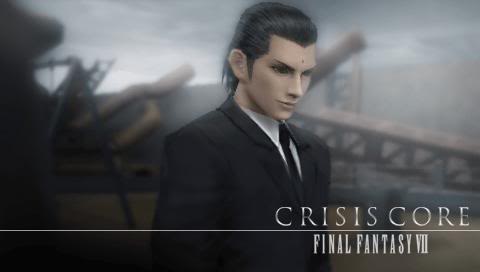

The DMW controls buffs, limit breaks and level-ups with a steady degree of randomization, which can be frustrating. But there is a reason why it never appeared outside of Crisis Core. As a way to replace Final Fantasy VII’s turn-based combat system, it’s not the worst choice that Square Enix could have made. Meanwhile, the Digital Mind Weave (DMW)’s slot machine style of limit break is exactly the sort of gimmicky gameplay mechanic that developers were playing with in 2007. You can switch difficulties on the fly, though, which allows you to make the best of both. The normal difficulty level is incredibly casual, while the hard mode ratchets up the difficulty by a solid amount, and can feel punishing. You’ve got a slot-machine limit break roulette, finnicky auto-targeting and an unbalanced difficulty scale. The battle system itself also feels dated. Because Crisis Core is a prequel to Final Fantasy VII, you do encounter some familiar faces like Midgar's hero Sephiroth, lowly Shinra guard Cloud, and even Turks Reno, Rude, and Tseng. You play as Zack Fair, a member of Midgar's SOLDIER force, who wants to understand why his friend and mentor Angeal has decided to betray the Shinra Electric Power Company and every principle he ever held dear.

#Crisis core final fantasy vii psp
But within the game's goofy and sometimes nonsensical choices, there’s a pretty compelling narrative.Īs Crisis Core - Final Fantasy VII - Reunion is a remaster of the 2007 PSP game Crisis Core - Final Fantasy VII, the broad strokes of the game remain the same. Granted, a remaster can’t help the very 2000s feel of the game design, the characters' liberal use of flip phones and the stilted dialogue. The original game was limited to a single platform more than 10 years ago, and the updated assets, combat and voice lines do a pretty decent job of presenting the game in its best light. Remasters can vary in quality and necessity, but Crisis Core - Reunion manages to succeed on both counts.


 0 kommentar(er)
0 kommentar(er)
